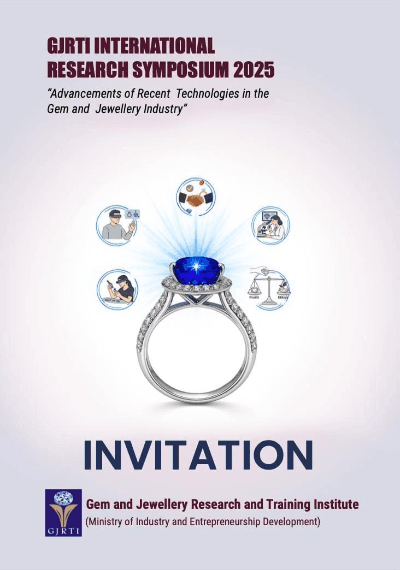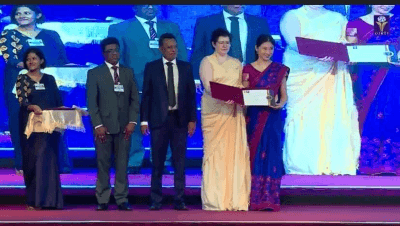
This year, I was honored to be invited as a panel member at the largest academic organization under the Sri Lankan government, alongside three distinguished guests:
• Prof. G.W.A. Rohan Fernand, CEO of the Gem and Jewellery Research and Training Institute (GJRTI),
• Rizwan Nayeem, Executive Director of the Ceylon Gems and Jewellery Trade Association (CGJTA), and
• Kelly Liu, Managing Director of KELLY GEMS.

Kelly Liu’s presentation part of theme on the symposium:
How do responsible sourcing and traceability systems within the supply chain influence international buyers’ trust and demand for Sri Lankan gemstones?
Responsible sourcing ensures that the mining and supply of gemstones are free from:
• Child labor and labor exploitation
• Financing of armed conflict
• Environmental degradation
• Unfair trade practices and corruption
Establishing Traceability Systems:
By leveraging blockchain, digital certification, and physical documentation, we can record the entire journey of a gemstone from the mine or point of import, through rough and faceted stone trading, cutting and polishing, customs declaration, retail, and finally to the end consumer.
Combining geological science with compelling storytelling, the full “life story” of a gemstone can be traced, adding emotional depth and market appeal. These systems enable full traceability of a gem’s lifecycle.

Why Is This So Important for International Buyers?
1. Regulatory Compliance Pressure
Markets like the U.S. and the EU require transparency in the supply chain.
Example:
•EU Corporate Sustainability Due Diligence Directive (CSDDD) effective from July 2024, provides a 3-year transition period for legislation and corporate adaptation.
International brands and retailers must prove their supply chains are free from unethical sourcing or face legal and reputational risks.
2. Rising Consumer Awareness
Modern consumers are willing to pay a premium for ethically sourced, certified gemstones.
3. Brand Value & Market Differentiation
Brands are making “traceable and responsibly sourced” gemstones a key marketing feature to enhance product value and stand out in a competitive market.
Case in point: Tiffany & Co.
Benefits for Sri Lanka
By establishing a transparent and trustworthy gemstone supply chain, Sri Lanka stands to gain significantly:
1. Increased Trust
Buyers are more likely to work with Sri Lankan suppliers when the risks are lower, and the sources are clearly verified.
2. Long-Term Partnerships
Buyers can build stable, lasting relationships with compliant suppliers, leading to reliable supply chains.
3. Enhanced National Branding
Sri Lanka can position itself as a trusted source of ethically mined gemstones, boosting its international reputation.
4. Entry into the High-End Sustainable Luxury Market
Demand for traceable and ethically sourced gems is growing, especially in Swiss watchmaking and European fine Jewellery industries.
5. Premium Pricing Potential
When gemstones can be proven to come from responsible mining with full traceability, international buyers are often willing to pay a premium.
6. Becoming the First Country to Establish a Colored Gemstone Traceability System


Author
Kelly Liu
- With nearly a decade of gem brokerage(intermediary) experience in upstream Sri Lanka,
- GIC (Wuhan University of Geosciences, China),
- FGA (Gem-A, UK),
- Master in Luxury Jewelry Management from Birmingham City University, UK.
She has published solo academic research in the field of gemology in professional journals of Gem & Gemmology which publisher is China University of Geosciences.

